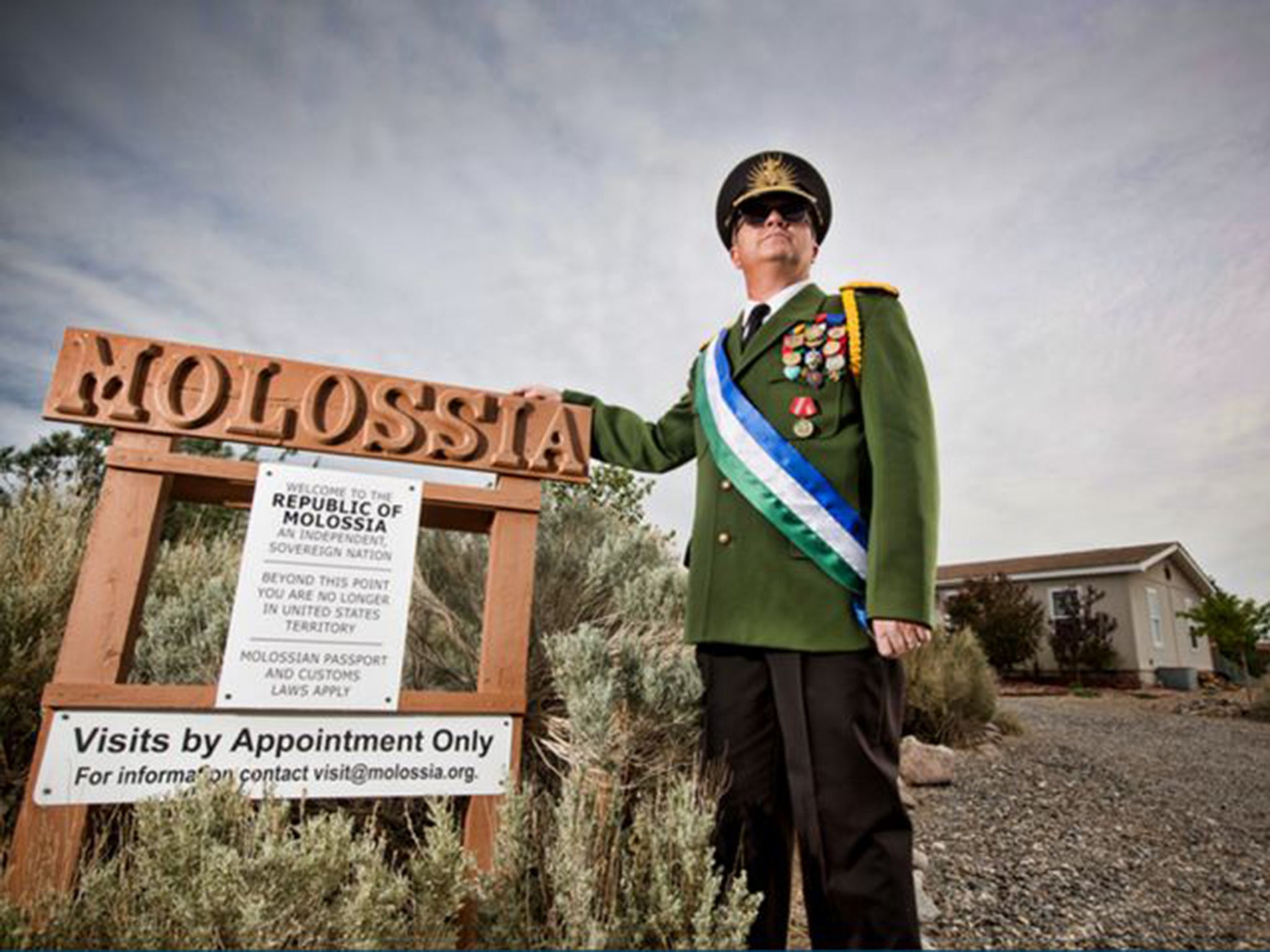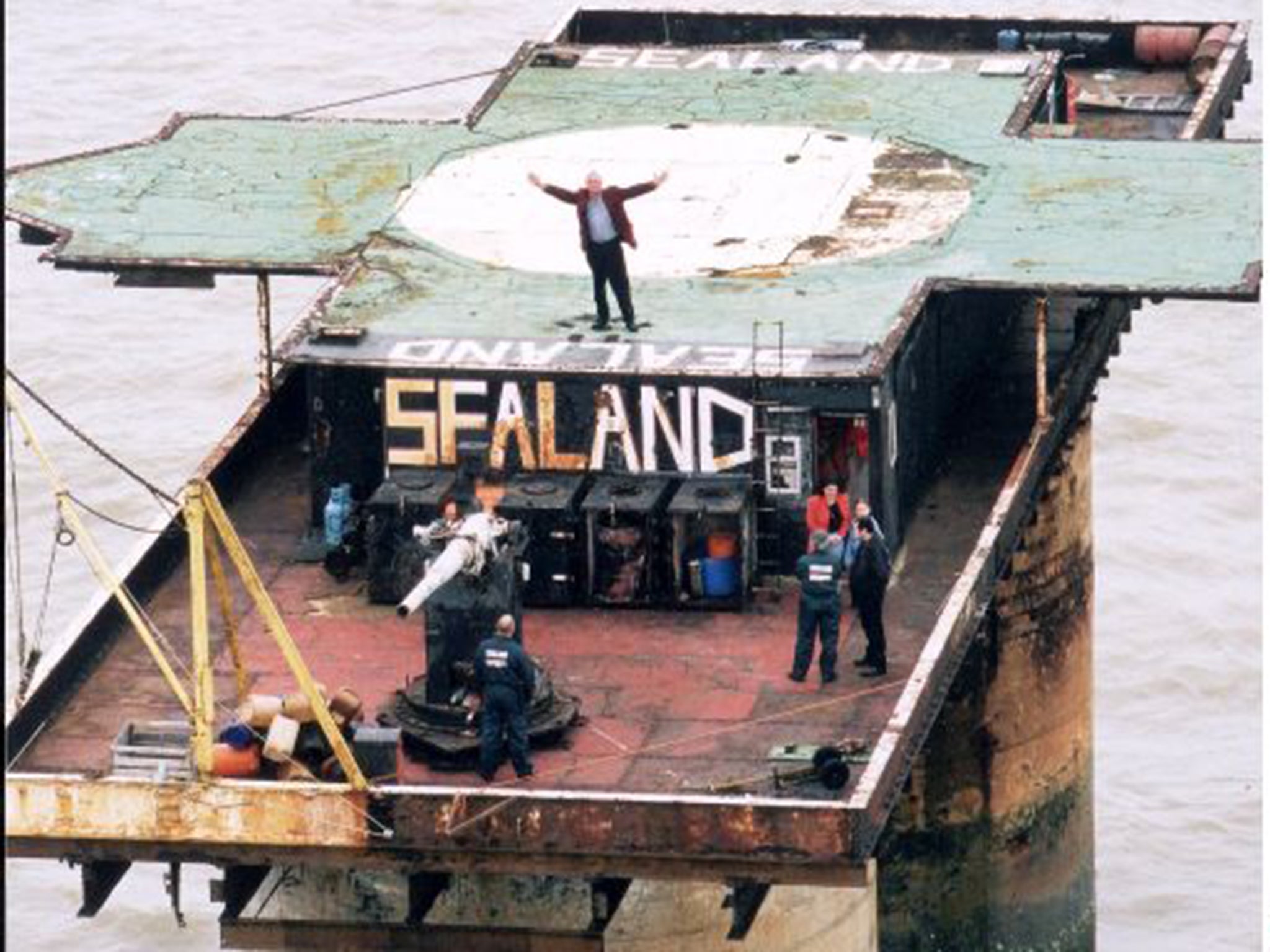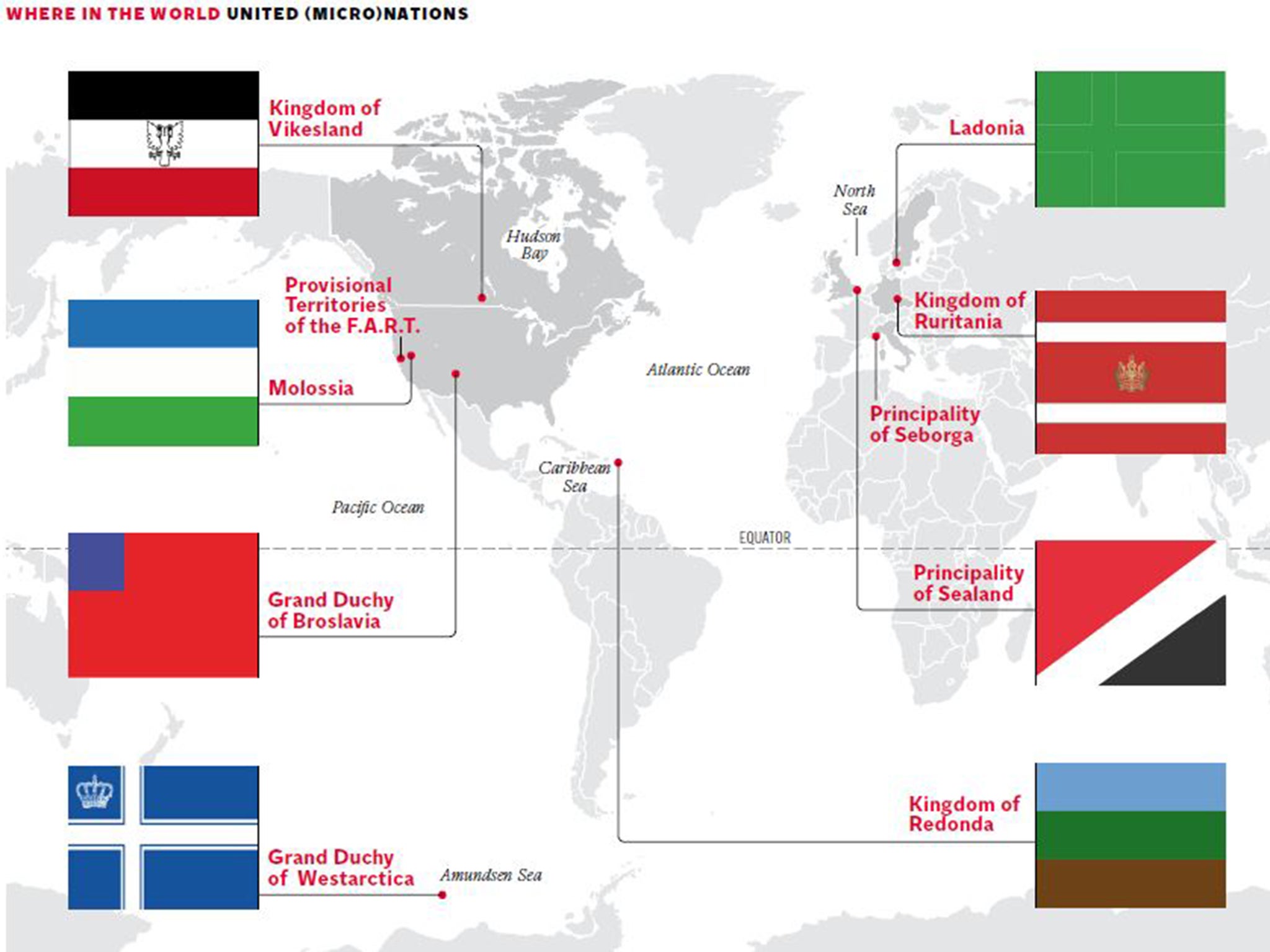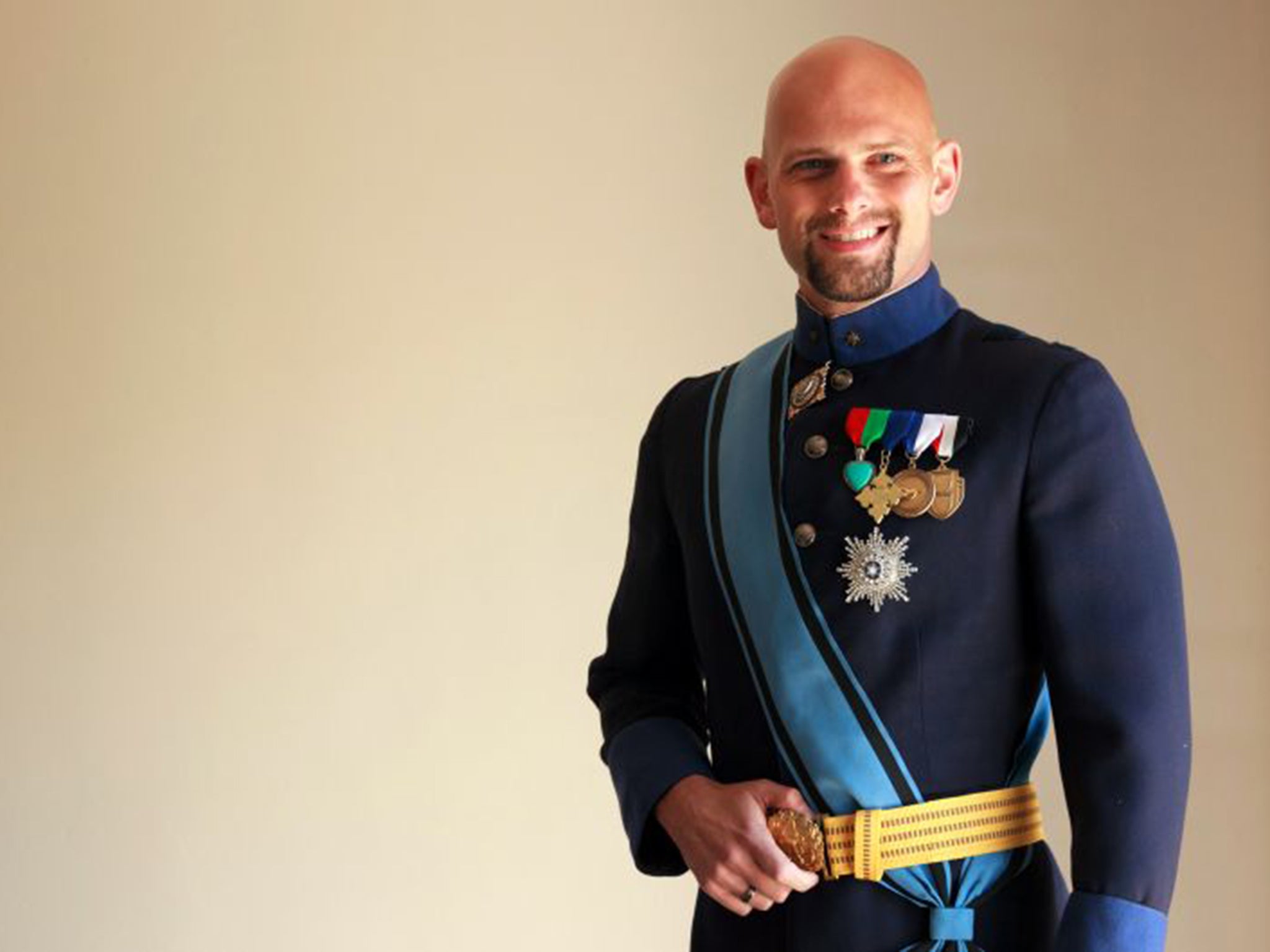MicroCon 2015: Dictators of the world unite at world summit of micronations - countries too small to count
Micronations have their own flags and national anthems, and even met for a world summit last week. It’s just that they’re not recognised – by the UN or the Eurovision Song Contest. Simon Usborne talks to their indefatigable leaders

Your support helps us to tell the story
From reproductive rights to climate change to Big Tech, The Independent is on the ground when the story is developing. Whether it's investigating the financials of Elon Musk's pro-Trump PAC or producing our latest documentary, 'The A Word', which shines a light on the American women fighting for reproductive rights, we know how important it is to parse out the facts from the messaging.
At such a critical moment in US history, we need reporters on the ground. Your donation allows us to keep sending journalists to speak to both sides of the story.
The Independent is trusted by Americans across the entire political spectrum. And unlike many other quality news outlets, we choose not to lock Americans out of our reporting and analysis with paywalls. We believe quality journalism should be available to everyone, paid for by those who can afford it.
Your support makes all the difference.It is rare enough to have a dictator’s personal email address, much less to receive such prompt and enthusiastic answers to questions. “I, Supreme Dictator Vladimir Veselovsky, am honoured to receive such a request from a great institution such as The Independent,” the leader of the Provisional Territories of the F.A.R.T. writes. “Therefore I shall, to the fullest of my abilities, answer your questions on behalf of the Department of the Exterior, our foreign ministry.”
Thanks, dear leader. Question one: what is the point of micronations, the tiny countries that have the trappings of statehood – name, flag, leader, national anthem – but are typically recognised only by those who are mad enough to invent them? Veselovsky has just returned to East Zbrizka, the windswept capital of F.A.R.T. (the Free Autocratic Republic of Totalitarianism) after MicroCon 2015, a conference of more than a dozen states that took place in California last weekend.
“It is a good question while also being rather difficult to answer,” the dictator says. “Personally, I think it’s because I find tyrannical communism entertaining.” This much is evident at the leader’s Facebook page. In a profile picture that is equal parts Guevara and Stalin, he poses in a general’s hat and a Mackintosh. The F.A.R.T. website, meanwhile, reveals its national anthem (“Long live the Supreme Dictator! Long live his fabulous reign! Long live our Supreme Dictator! Serve the F.A.R.T. in his good name!”) and official currency, the Imperial F.A.R.T. Dollar. There is a national sport – chess – and even a national fish, the red-lipped batfish.

Veselovsky is 16 and is based in Los Angeles and want to be a composer when he leaves school. All of his family and friends are citizens of F.A.R.T. And while his tongue threatens to poke a hole in his cheek, he says there is a point to what he does. “It’s surprisingly educational,” he explains. “If you really want to start a serious micronation you have to put in a lot of effort and do a lot of research, which means you really begin to develop a greater understanding of how an existing country functions.”
Hundreds of similar, simulated countries have emerged in the internet age, but early examples of micronations date back as far as the 19th century. The Principality of Seborga, in northern Italy, claims it exists thanks to a hole in the redistribution of territories after the Napoleonic Wars in 1815. Saturday’s conference was hosted by the Republic of Molossia, which is among the best-known micronations thanks to the indefatigability of President Kevin Baugh. The country he established under a different name in 1977 now occupies little over an acre of land in Nevada, otherwise known as his house and garden.
More than 50 delegates gathered for the conference at Anaheim Central Library. Proceedings included a chance for each world leader to speak, a formal ball, and a day trip to that other putative state, the nearby Disneyland. Members included HRH Grand Duke Travis McHenry, the leader of the Grand Duchy of Westarctica, who in 2001 took command of an unclaimed chunk of Antarctica, and HM Grand Duke Jacob Felts of the Grand Duchy of Broslavia (“land of brotherhood”).

Notable absentees included the Principality of Sealand. In 1966, Roy Bates, a former British Army major, abandoned his plans to launch a pirate radio station on a derelict fort in the North Sea, off Suffolk, and instead claimed the concrete platform as a new country. Soon afterwards, when Bates’s son, Michael, fired warning shots at a would-be demolition team, a court threw out the case against him because the platform lay outside British waters. It no longer does, but Prince Roy maintained his national claim until his death in 2012, issuing passports and making his own coins and stamps. Michael – now Michael Regent – still leads Sealand, albeit from his home in Essex.
There have been several attempts to organise micronations. Sealand has had its own football team, which has taken part in tournaments staged by the Micronational Football Association. Its Sepp Blatter is Barnaby Hands, a student who is also the founder and president of the Democratic Environmental Society of Senya, based in Norfolk. He hopes to host the twice-cancelled MFA World Cup in London later this year. The Micro Wiki online encyclopedia, is a remarkably thorough resource meanwhile, with many country pages longer than those of real nations.

In 2005, the presenter Danny Wallace explored micronationalism for a BBC series by declaring his east London flat an independent state, the Kingdom of Lovely. He delivered the declaration to the then Prime Minister, Tony Blair, and sought fiscal advice from the former chancellor, Ken Clarke. After a failed visit to the United Nations in New York, where he had tried to secure recognition, he attempted to enter the 2006 Eurovision Song Contest with a song called “Stop the Muggin’, Start the Huggin’”. That also failed, and Lovely soon ceased to exist (or, er, to not exist).
Comedy aside, Veselovsky returns to his educational argument for micronationalism. “It’s like doing a high school science experiment,” he says. “Maybe you can’t test the theory with the given supplies, but if you do it properly you can replicate the same results at a smaller scale.” He also believes in his hobby as a means of questioning our ideas of statehood. “A micronation is an unrecognized, self-declared country, but to be fair, that’s basically how every established country started out,” he writes, adding: “The borders of ‘real’ countries often have to do solely with ethnic, political, and religious divides, whereas micronations often are more about a common set of beliefs, which I find to be much more profound.”
Join our commenting forum
Join thought-provoking conversations, follow other Independent readers and see their replies
Comments